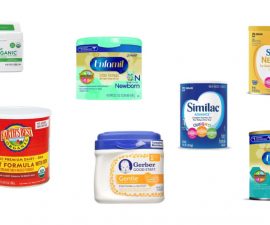Congratulations, your baby has hit the half-year milestone. For the last six months, she has relied on breastmilk as the main source of energy and nutrients.
It’s now time to start introducing him or her to solid foods and light drinks to supplement the breastmilk.
These foods are not meant to substitute the breastmilk, they come to help the baby keep up with her growing needs.
The world health organization (WHO) and UNICEF recommend breastfeeding first then giving solid foods. In summary, breastmilk is essential while the foods are just compliments.
As we try to break down this topic, let’s start by looking at the following:
Readiness
We have already mentioned that you should wait at least 6 months before introducing solid foods to your baby.
However, babies differ slightly from this guideline. This may be attributed to the unique developmental stages of the baby.
Do not die waiting for this threshold time, wait till when your baby is developmentally ready to eat even if it will be a month later.
What are the signs that the baby is ready to take solid foods?
- The ability to sit without being held.
- The baby having an active interest in food while everyone else is eating.
- Loss of tongue thrust.
NOTE: Even if the baby has these signs before attaining 6 months, DO NOT introduce solid foods.
Characteristics of Baby Foods
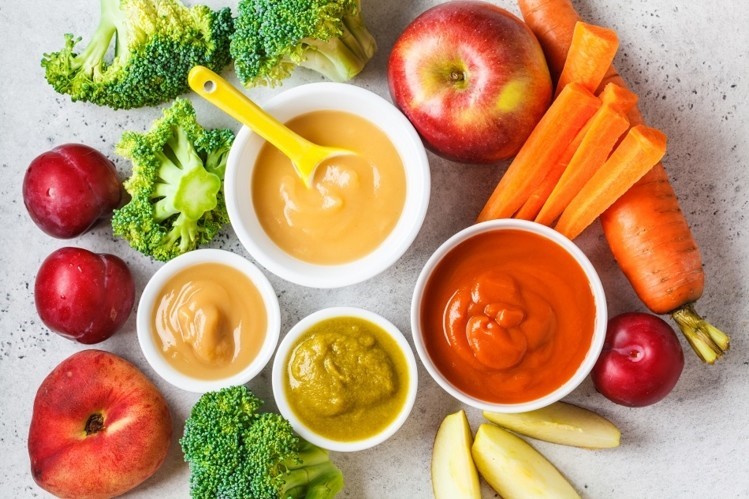
Who would not like a cheeseburger or a pizza? Well, you need to understand that 6 to 12-month-old babies cannot digest some kinds of food.
Some foods can do more harm to the baby than good. As you try to figure out what to feed your little angel, look at the characteristics of baby foods.
The foods must be soft
The baby’s digestive system is barely developed to break down hard foods. Smooth creamed vegetables or fruits and mashed foods are examples of soft foods.
The foods must be nutritious
Remember we complementing the baby’s diet of breastmilk. the foods should contain vitamins and the necessary salts.
If the macronutrients exceed the recommended amount by a huge margin, they may end up being toxic and adversely affecting the baby’s health.
The foods should be simple
The digestive system is still simple and developing. Complex foods should be far from your recipe.
Signs that your baby is hungry

“I am hungry mum!” Unfortunately, this is a statement you can’t get from a baby of 6 to 12 months.
The baby still has not learned to speak at this age. The remedy to a baby’s hunger is reading the body signs.
These are some of the common signs:
- It’s either the baby is hungry or tired when she yawns. If the baby has just had sleep, then this discussion narrows down to one point- that the baby is hungry.
- Happy when she sees the dish. Contrary to this, a full baby will push the food away, turn her head down or even frown when she sees food.
- Sucking the fist, smacking lips, or trying to put anything near her in the mouth.
- Turning head to look for the breast.
- Upset when you take the food away. If she does want the food to be placed far from her, she is still hungry.
- Becoming more active.
Signs that your baby is full

Your baby must feed to satisfaction. Some commons signs that your baby has had enough of eating include:
- Turns away from mom’s breast.
- Pushes food away.
- Becomes more relaxed.
- Closes mouth and shows no interest in food.
- Tries to use hand motions or making sounds to let you know she is full.
The Foods for 6 to 12 Months Old Babies
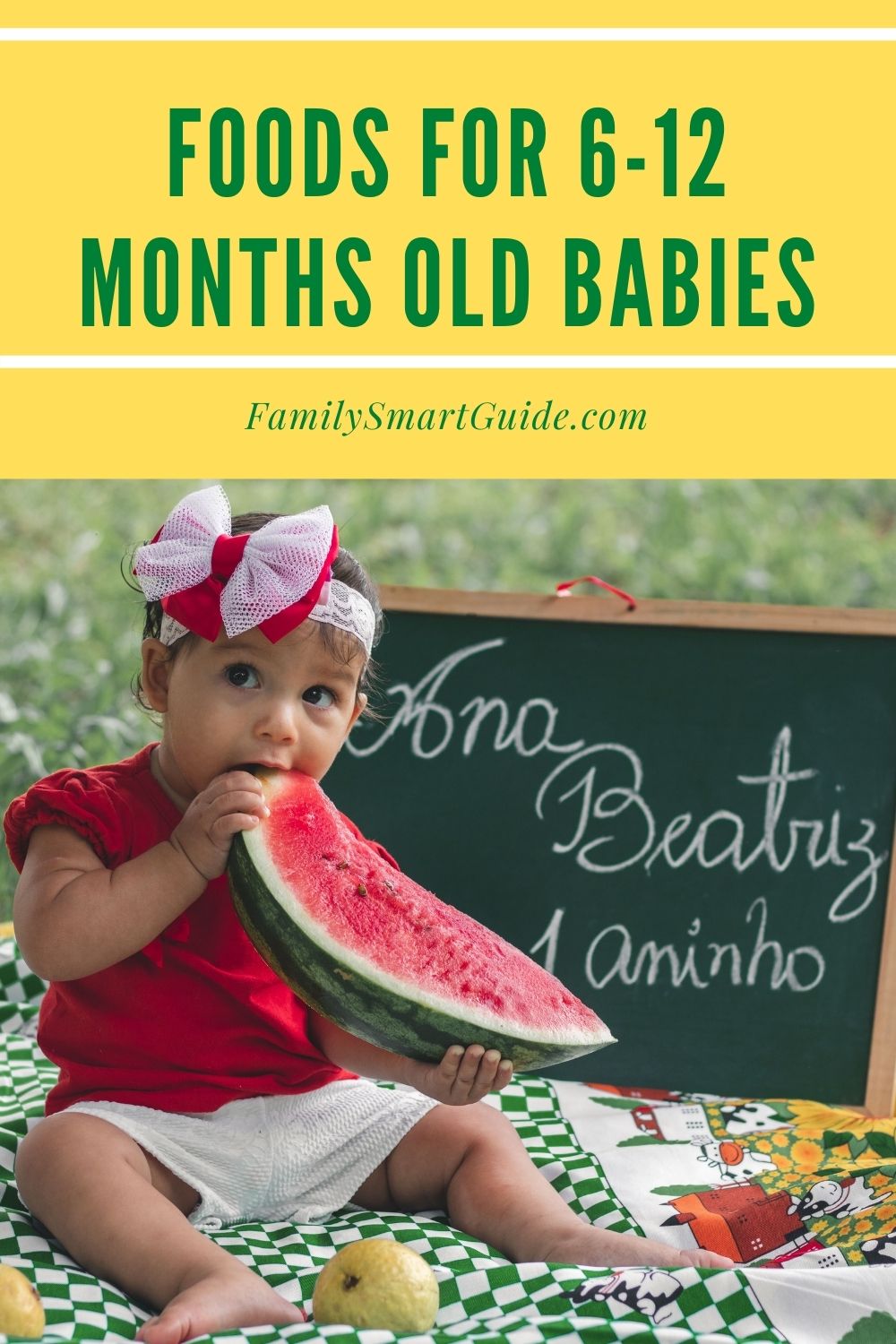
Which foods are fit for babies of 6 to 12 months? We are going to solve this puzzle right now. Your baby has a small stomach that can only accommodate small amounts of soft foods.
For better understanding, we are going to split this 6-12-month duration into a trimester.
Babies of 6 to 8 months
At this age, they are very new to solid foods. They are gradually learning how to chew and their digestive systems are developing to adopt this incoming lifestyle. The simplest foods are all you need to have in your recipe at this time.
Baby food recipes 6-8 months
Healthy foods at this stage will include:
Fruits puree
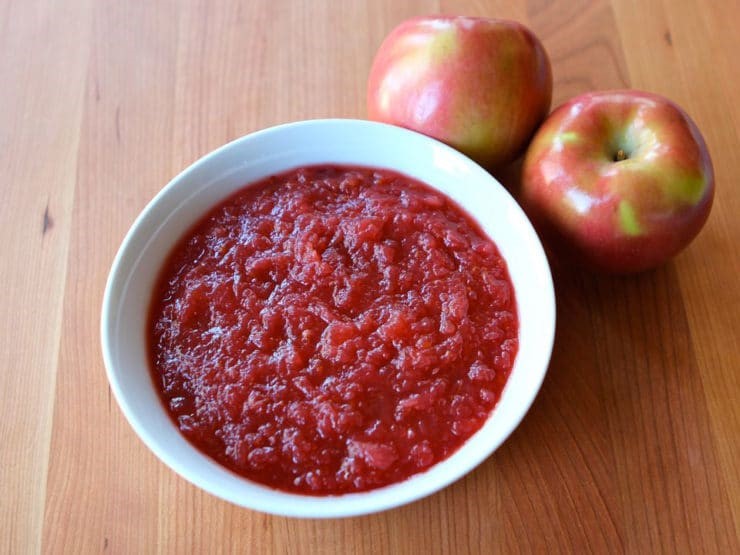
First of all, make sure you correctly understand the difference in the meaning of these three types of foods: puree, mashed and steamed foods.
Confusing them as one thing may lead you into preparing the wrong diet. The puree is a food prepared by processing it in a blender.
Fruits like bananas, avocado, apples, and pears can be prepared with this method.
Vegetable Puree
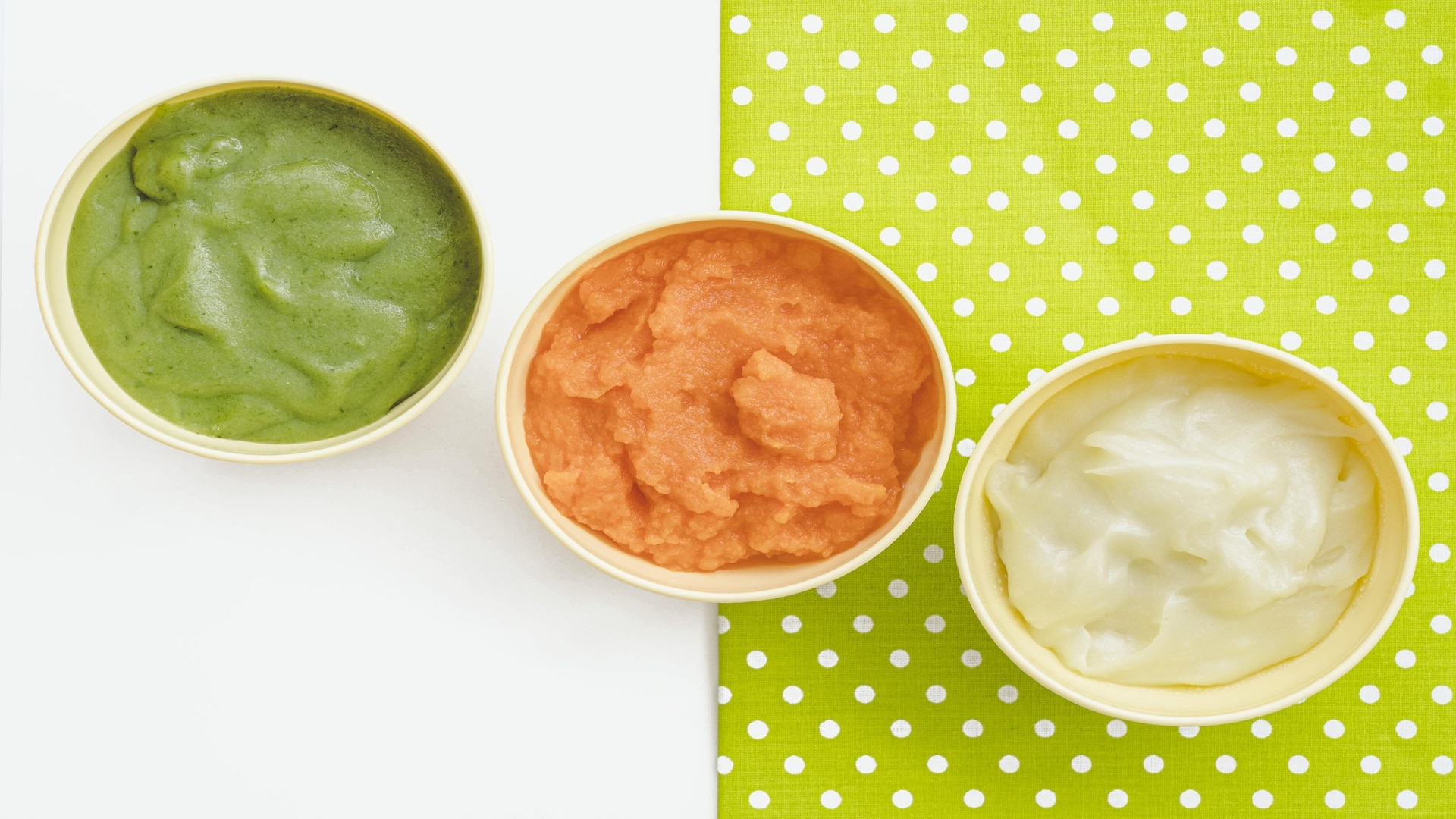
Sweet pumpkins, potatoes, sweet potatoes, and carrots can be blended into a perfect puree. It is advisable that you don’t mix different vegetables in one meal. Try one meal at a time.
Yogurt
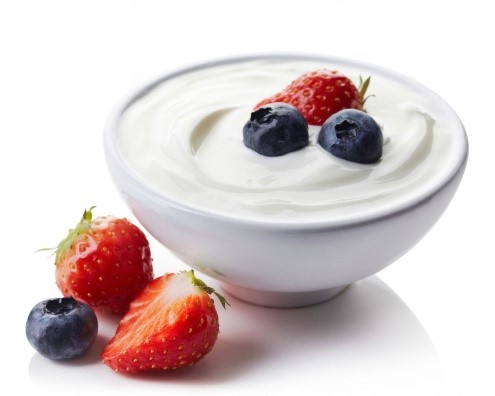
We are not talking about the yogurt on the supermarket shelves! There is yogurt that is processed specifically for babies.
It contains all the necessary needed nutrients and can be used as an alternative to puree. You are discouraged to make home-made yogurt for babies as you may use unappropriated ingredients.
Vegetable soup
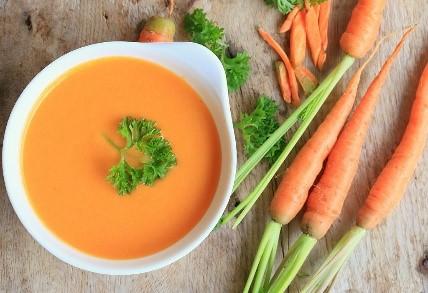
There is a variety of vegetables to choose from. Squash, leaks, potatoes, and mushrooms are good examples. Boil them and give the soup to your baby. The soup should be thick.
Pulses
Not all pulses are fit for the baby. Dals are most preferred as they are simple. The pulses can be boiled and the soup given to the baby.
How much solid food for 6 months old?
Since the baby is starting to learn to eat, small amounts of soft foods are recommended.
Do not be misguided on the ‘correct amount’ should baby should take as babies are dynamic.
We have already discussed the signs that the baby has had enough of eating. At this age, there is no need to force the baby to take large amounts of food.
How Often?
Having a feeding schedule is very important. However, at this age, the biggest concentration should be on keeping the baby full rather than strictly sticking to the timetable.
Breastfeeding should be at least every 2 hours. Since at this stage feeding the baby solid foods are meant to complement breastfeeding, the baby should only be given solid foods after she has breastfed.
BABIES OF 9 TO 10 MONTHS
At this age, the baby has already adopted this new lifestyle of foods rather than breastmilk only.
Chewing food and swallowing is now much easier. The digestive system is now more developed to break down food.
Baby food recipes 6-8 months
Steamed vegetables
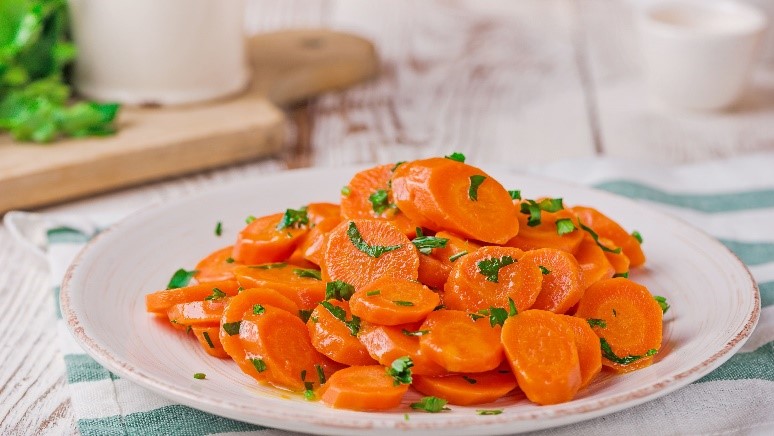
At 6-8 months, the vegetables were better when blended. At 9 to 10 months, you can advance and steam the vegetables. However, go for the soft vegetables only.
Cereal porridge
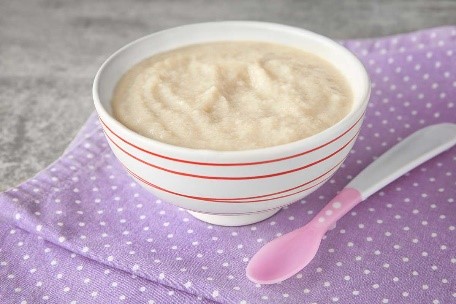
Cereals are perfect sources of carbohydrates and vitamins for babies. Examples of cereals suitable for babies include wheat, barley, millet, and oats. Dry and powder these cereals and prepare porridge.
Mashed food
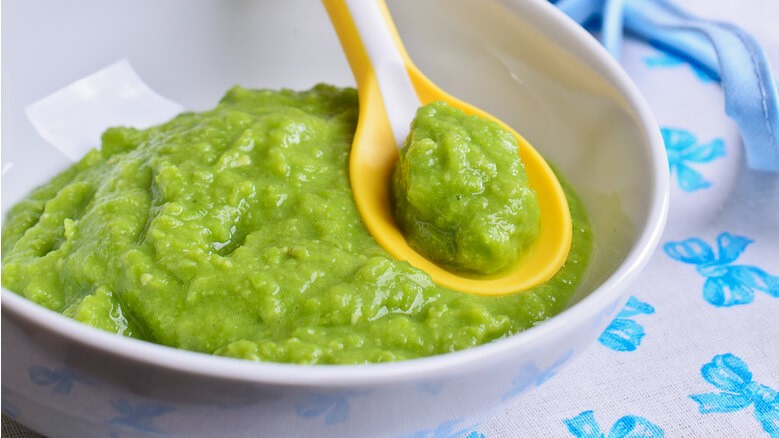
Crush fruits to make a simple cocktail. Bananas, apples, pumpkins, sweet potatoes, and pears are examples of the foods you should try.
Simple pasta
This is the right time to introduce mushrooms and ham to the baby’s meal. Try adding chopped vegetables to this delicacy.
Sweet potato pancakes
Tired of the puree? Try baking some simple pancakes using sweet potato flour. Remember we are talking of sweet potato pancakes NOT any other type of pancakes.
Vegetable soup
As the baby grows, vegetable meals should also advance. At this age of 8 to 10 months, the baby can be fed the soup of the common household vegetables. Soup from kales, carrots, spinach, and broccoli will be okay.
Baby omelet
A simple recipe of omelet with touches of tasty vegetables will be good for your baby.
How much and how often?
At this age, the baby can take a significant amount of food. Your feeding schedule should include at least 3 to 6 meals per day. Snacks are equally important; you should consider at least 2 snacks per day.
Babies of 11 and 12 months of age
at one year, your baby must be a fan of food! This is the perfect time to advance the baby’s diet. The recipes should be diverse for the baby to get a supply of varied nutrients.
However, this does not mean that you are restricted to feed the baby the previous meals you were offering.
12 months of baby food menu
For the breakfast, you can consider the following:
Pumpkin Waffles
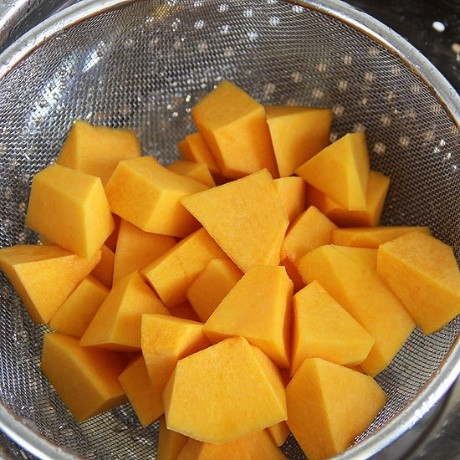
Pumpkins are known to have a wide range of nutritional values. They will be the perfect way to start the day of your baby.
Unsweetened yogurt
Berries and granola are perfect ingredients for this meal.
Porridge
There are so many types of porridge flours. Millet, sweet potatoes, maize just to mention a few. Make sure the porridge is thick.
A concentrated porridge contains more nutrients as compared to a diluted one.
Pancakes
A pancake made of a mixture of fruit flours will be a perfect meal to start your baby’s day. You can mix bananas, eggs, wheat flour among other ingredients.
Egg roll-ups
One egg per day is okay. You can fry an egg sprinkled with some cheese.
For the lunch, you can consider this:
Whole grain meals
This will supply carbohydrates to the baby. Wheat is an example of whole grain. Daily rice recipes are recommended.
Fruits
You don’t have to keep preparing fruit purees. You can give the baby sliced grapes or squashed nuts.
Baby pizza

I am sure you love pizza. Why not give your baby some baby pizza? A baby pizza is usually topped with vegetables and regulated amounts of cheese.
The dinner really matters. A good meal will translate into a good sleep. Have a look at the following common dinner foods for babies:
Oatmeal
Oatmeal is a healthy meal for babies. It is a source of melatonin. Melatonin is involved in the production of insulin which helps in inducing sleep.
You can mix the oatmeal with apples to improve the nutrition quotient.
Sweet potatoes
Right from 6 months, sweet potatoes should never be far from the baby’s menu. It is simple food but rich in a variety of nutrients.
White rice
The international rice research institute (IRRI) conducted research and found that rice people tend to feel sleepy after taking rice.
Why should you not go rice if you want your baby to have longer sleeping stretches?
The white rice is preferred for babies over the brown one because of a higher glycemic index.
Vegetable
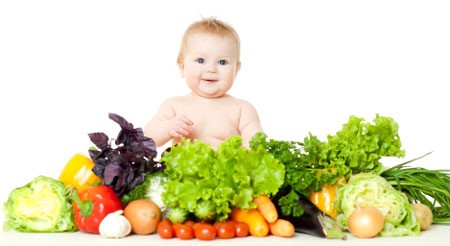
We are constantly stressing about feeding your baby green and leafy vegetables. These vegetables contain iron, vitamins, and minerals essential for your baby.
Fruits
They are great in complementing the dinner. Cherries replate with melatonin the sleep hormone we talked about. Apples are recommended too.
Purees
The purees you were preparing for your baby six months ago are still recommended but now in an advanced recipe. Mix different fruits as they will provide the right quotient of nutrients.
Chicken
Tired of the vegetables? Consider introducing chicken to the baby’s diet. Chicken contains tryptophan which makes babies sleepy. It is also a protein source.
BABY SNACKS
Stuck wondering about the snacks to pack for your baby? Have look at our list.
- Yogurt.
- Whole grain graham crackers.
- Boiled eggs.
- Cheese sticks.
HOMEMADE BABY FOOD RECIPES
Homemade foods are the best for your baby. In the case of buying baby food, it is difficult to ascertain whether the preparation conditions were right. There are a lot of homemade recipes to choose from.
Here are some of the easy-to-prepare baby foods.
Purees
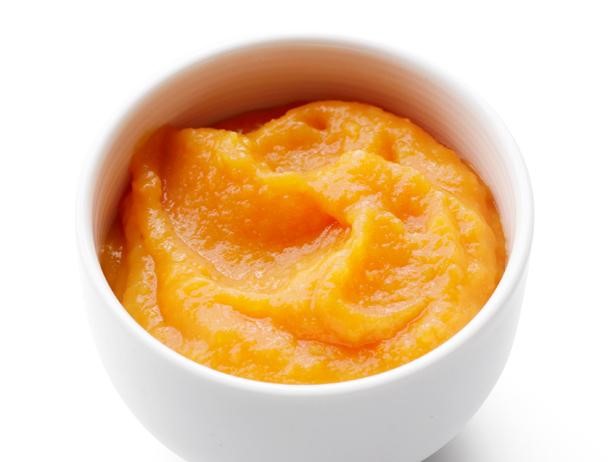
All you need is a blender and fruits to prepare these delicacies. The fruits should be fresh to avoid a sour taste. Some of the fruits include: apples, carrots, mangoes, bananas, plums, pears, avocados -the list is endless.
Porridge
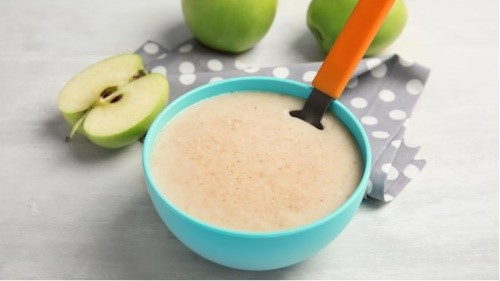
Porridge is a basic food for babies. The preparation is as easy as the one of puree. There are vast types of porridges due to the different kinds of flours.
Examples of porridges include barley, green gram, wheat milk, carrot, oats, and banana porridge.
Mashed food
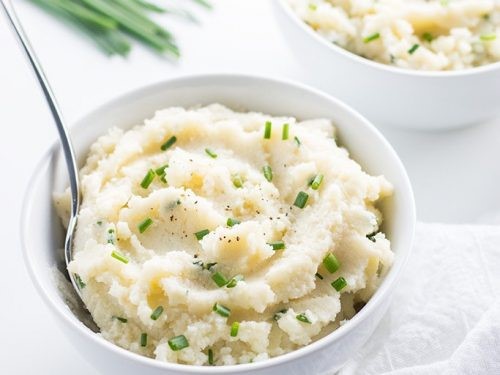
If you don’t have a blender, this is the alternative. You can crunch fruits into smaller particles and give them to the baby. All the fruits which can be blended can be mashed too.
FOODS YOU SHOULD NOT FEED YOUR BABY
Not all foods are fit for your baby’s health. Giving the baby these foods will be equal to poisoning them.
Here is a list of foods you should give to your baby.
Raw honey
This causes botulism in infants. Botulin is a bacterial toxin that causes food poisoning. Wait until your baby is several years of age before giving her honey or honey products.
Cow’s milk
Babies of age below 12 months should only be taking breastmilk. Their digestive system might fail to digest cow milk fully and this may cause microscopic bleeding.
Foods with choking hazards
You can give your baby mashed or pureed pumpkins and other vegetables but not chunky foods. The babies are learning to swallow and big pieces of food might choke them.
Certain types of fish
Some fish contain high amounts of mercury which is dangerous to babies. Whitefish, salmon, and tuna are safe and recommended to be often on the baby’s menu.
Tuna, shark, sword, and marlin are examples of fish that should never be served to babies. Before you prepare fish, confirm if it is safe for babies.
Foods with excessive sugars
A baby of 12 months and below require natural sugars which are found in fruits and foods. You should avoid sugary snacks and drinks.
Lightly cooked or boiled eggs
Always ensure you hard boil egg. Avoid foods that have egg mixtures that you cannot confirm if they are thoroughly cooked.
Salty foods
The baby’s kidney is not well developed to withstand much salt. Stock cubes and food flavors are equally dangerous.
BEST VITAMINS FOR BABIES OF 6 TO 12 MONTHS
Calcium
Calcium is essential for the development of bones and teeth. It is the dream of all parents to raise strong kids.
Feeding your baby foods with an average amount of calcium of 700 milligrams will make her grow strong. Foods that have calcium include salmon, leafy vegetables -just to mention but a few.
Iron
Iron builds blood cells and helps in brain development. Breastfeeding is the primary way to ensure the baby is getting this essential mineral.
Alternatively, you can hit the stores and purchase iron supplements.
Zinc
Zinc helps worn-out cells to replicate and grow.
Vitamins aids in body growth. Here are the essential vitamins vital to babies.
- Vitamin A keeps the skin, hair, vision, and immune system healthy.
- Vitamin B3 helps the body turn food into energy, and protecting cells from damage.
- Vitamin B6 keeps the brain and immune system healthy.
- Vitamin B12 keeps the nerves and blood cells healthy. It is also essential in making the DNA to replicate.
- Vitamin C Protects against infections and helps wounds to heal.
- Vitamin D Helps to absorb calcium from food.
- Vitamin K Helps the blood to clot.
BABY FOOD ALLERGIES

Starting to introduce solid foods to a baby is an exciting milestone for the parents. However, this comes with questions and concerns.
What foods are known to cause allergies to babies? How do you avoid them? It is important to understand that allergies differ from child to child.
When a friend tells you of a certain food causing allergy to her baby, it does not mean you shy off from giving the same food to your baby.
Your baby might react differently. You just have to be keen while feeding your baby to note her allergies.
Here are some useful tips:
Introduce new foods gradually
It is vital to introduce a baby to new foods gradually, one at a time, to note any case of allergy. Stick to your menu for at least two days before adding new food entries.
Get to know the common allergenic foods
Don’t get confused, we are not been specific on the foods that will cause allergy to your baby.
We are reviewing the existing baby allergies and the foods which were believed to bring the allergies.
The US National Institute of Allergy and Infectious Diseases found that the allergenic foods which kept recurring in most of the reported cases were:
- Cow’s milk.
- Eggs.
- Peanuts.
- Fish.
- Soy.
- Wheat.
It is okay to introduce these allergenic foods when your baby is ready as there is no evidence that waiting until the baby is several years older prevents food allergies.
FOOD ALLERGY SYMPTOMS
Food allergies occur within a few hours after the baby takes the food. After introducing a new foods to a baby, keep eye on the following symptoms.
- Vomiting.
- Diarrhea.
- Swelling of different parts of the baby’s body.
- Hives.
- Difficulties in breathing.
- Unconsciousness.
- Rashes on skin.
Severe food allergy symptoms
Severe allergies can be fatal within seconds. Symptoms such as severe vomiting or diarrhea, excessive swelling, and difficulties in breathing should not be ignored.
If this happens quickly rush your baby to the hospital.
Dealing with mild food allergies
If you notice mild symptoms such as rashes or hives, you should exclude the food which caused the allergy from your menu. It is also advised to visit a pediatrician or an allergist for further evaluation.
Family allergy connections
If there is a food allergy running through the family, the baby will likely have the same. Although, this is not a certainty.
Primary protection against baby food allergies
The American Academy of Pediatrics recommends potential allergens been introduced to infants at earlier food introduction stages. This move may prevent the baby from developing allergies to those foods.
In between when the baby is 6 to 12 months old, introduce the common allergenic foods such as peanuts, among other common allergenic foods.
Remember that some foods such as cow milk, some fish, and honey should not be introduced to babies of the age of below 12 months.














